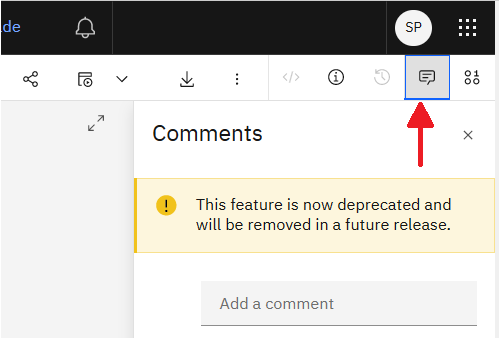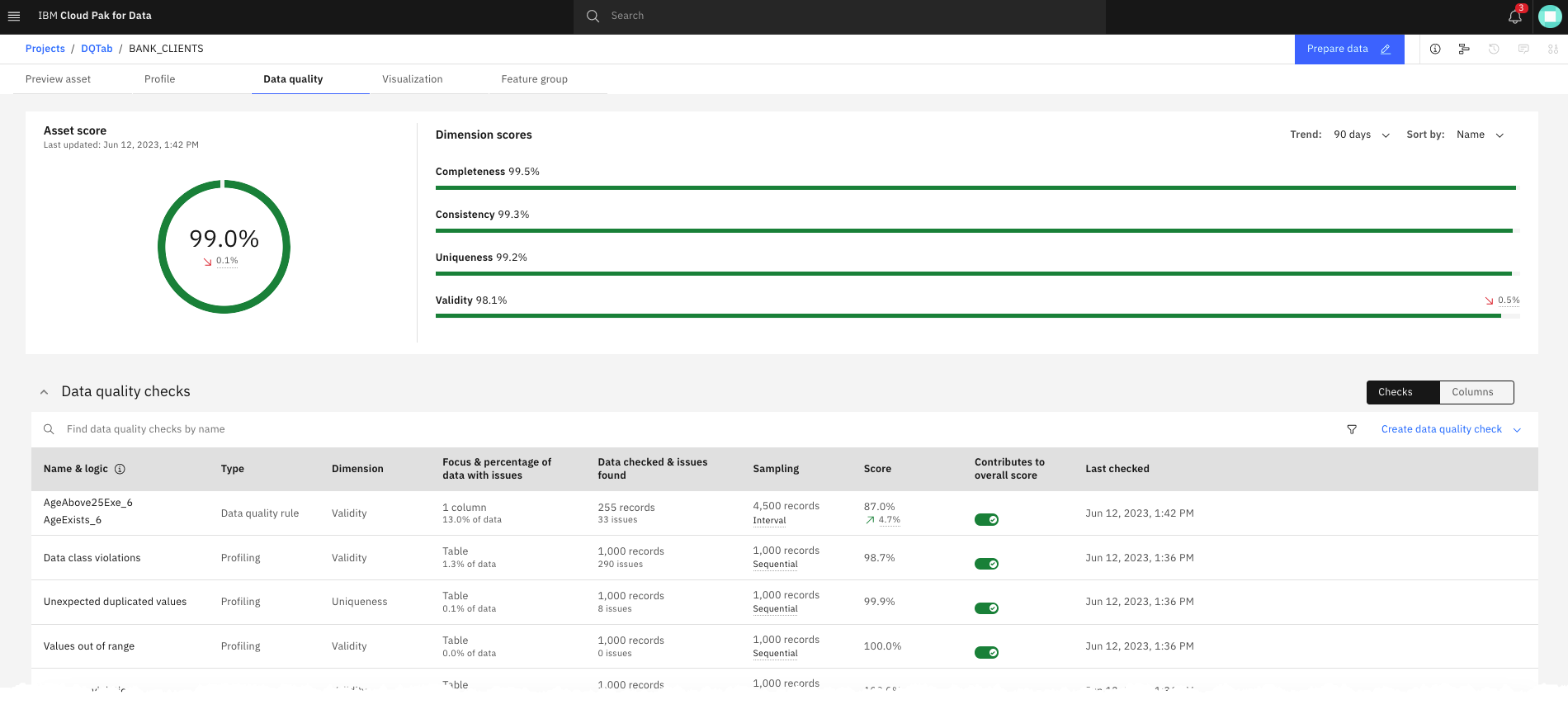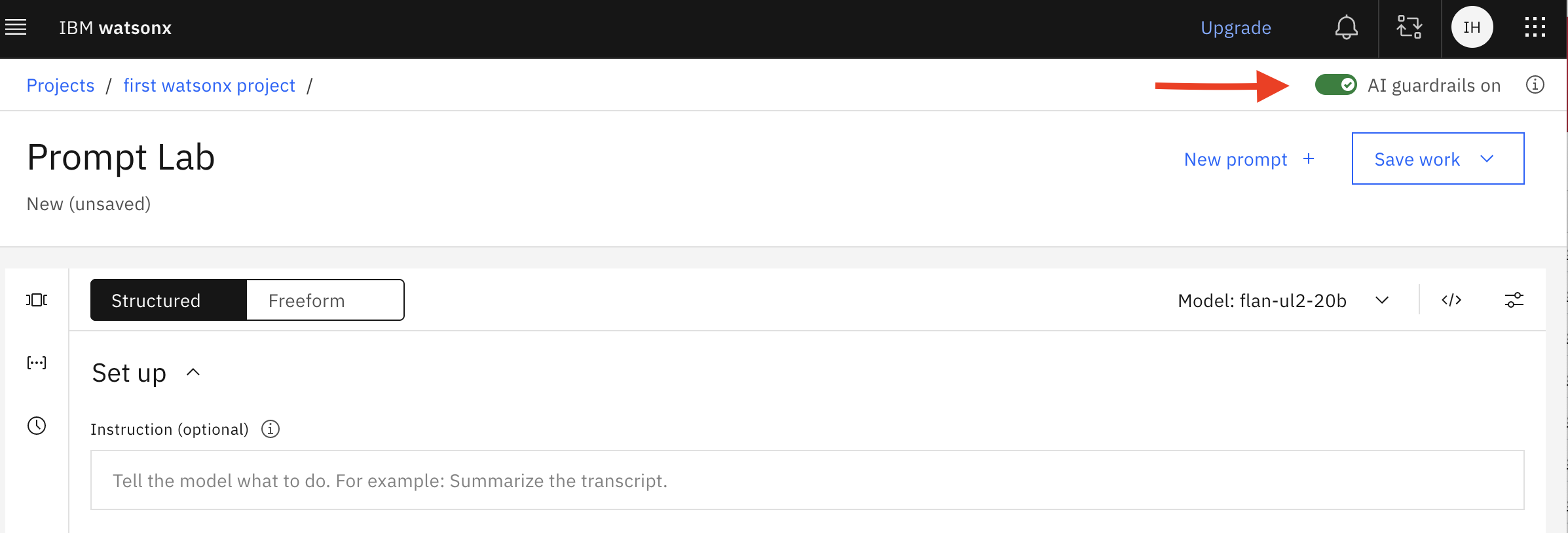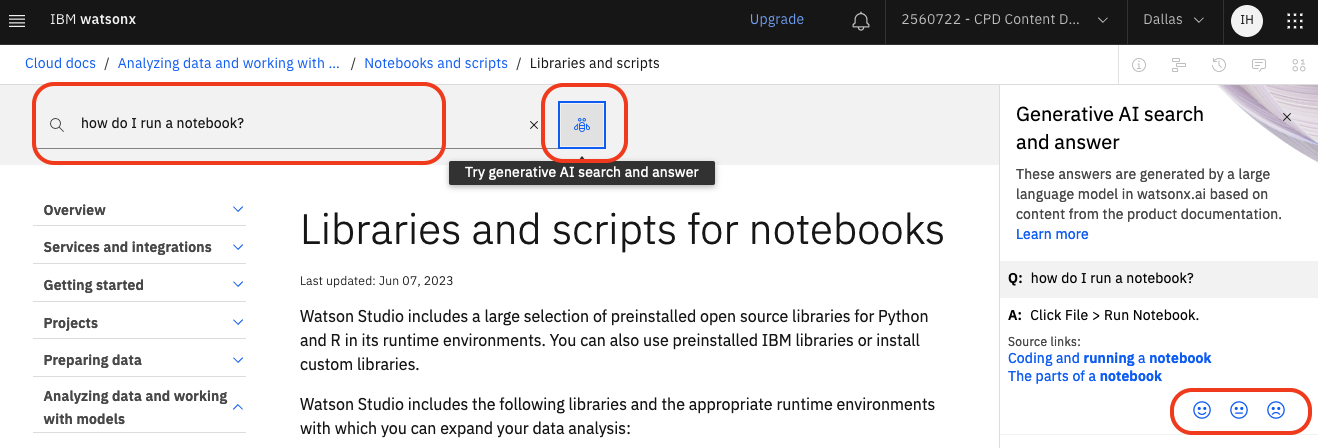Check back each week to learn about new features and updates for IBM watsonx.ai.
Week ending 8 September 2023
Generate synthetic tabular data with Synthetic Data Generator
07 Sept 2023
Now available in the Dallas and Frankfurt regions, Synthetic Data Generator is a new graphical editor tool on watsonx.ai that you can use to generate tabular data to use for training models. Using visual flows and a statistical model, you can create synthetic data based on your existing data or a custom data schema. You can choose to mask your original data and export your synthetic data to a database or as a file.
To get started, see Synthetic data.
New Llama-2 Foundation Model for natural language generation and chat
7 Sept 2023
The Llama-2 Foundation Model from Meta is now available in the Dallas region. Llama-2 Chat model is an auto-regressive language model that uses an optimized transformer architecture. The model is pretrained with publicly available online data, and then fine-tuned using reinforcement learning from human feedback. The model is intended for commercial and research use in English-language assistant-like chat scenarios.
- For more information on the Llama-2 model, see Supported foundation models available with watsonx.ai.
- For a description of sample prompts, see Sample foundation model prompts for common tasks.
- For pricing details for Llama-2, see Watson Machine Learning plans.
New LangChain extension for the foundation models Python library
7 Sept 2023
You can now use the LangChain framework with foundation models in watsonx.ai with the new LangChain extension for the foundation models Python library.
This sample notebook demonstrates how to use the new extension: Sample notebook
Introductory sample for the retrieval-augmented generation pattern
7 Sept 2023
Retrieval-augmented generation is a simple, powerful technique for leveraging a knowledge base to get factually accurate output from foundation models.
Week ending 1 September 2023
Deprecation of comments in notebooks
31 Aug 2023
As of today it is not possible to add comments to a notebook from the notebook action bar. Any existing comments were removed.

New StarCoder Foundation Model for code generation and code translation
31 Aug 2023
The StarCoder model from Hugging Face is now available in the Dallas region. Use StarCoder to create prompts for generating code or for transforming code from one programming language to another. One sample prompt demonstrates how to use StarCoder to generate Python code from a set of instruction. A second sample prompt demonstrates how to use StarCoder to transform code written in C++ to Python code.
- For more information on the StarCoder model, see Supported foundation models available with watsonx.ai.
- For a description of the sample prompts, see Sample foundation model prompts for common tasks.
IBM watsonx.ai is available in the Frankfurt region
31 Aug 2023
Watsonx.ai is now generally available in the Frankfurt data center and can be selected as the preferred region when signing-up. The Prompt Lab and foundation model inferencing are supported in the Frankfurt region for these models:
-
mpt-7b-instruct2
-
flan-t5-xxl-11b
-
flan-ul2-20b
-
For more information on the supported models, see Supported foundation models available with watsonx.ai.
Week ending 25 August 2023
Quickly find catalogs with name and date sorting
24 Aug 2023
You can now find catalogs by sorting the list of catalogs on the View all Catalogs page by name or date created. Click on the Name header to sort the catalogs alphabetically by name. Click on the Date created header to sort the catalogs by ascending or descending dates.
Data quality at a glance in Watson Knowledge Catalog
22 Aug 2023
Data quality information has a new home. For each data asset in a catalog or a project, a Data quality page is populated with quality information that comes from predefined data quality checks and data quality rules. You can see the applicable data quality dimensions and the results of individual quality checks. You can drill down into the results for each check or even into the results for each column.

For more information, see Data quality.
Similar information is available from metadata enrichment results.
All data quality analysis is now run in the context of metadata enrichment or data quality rules. When you run profiling from the Profile page in a project or a catalog, data quality is not analyzed anymore and no data quality scores are generated.
Additional cache enhancements available for Watson Pipelines
21 August 2023
More options are available for customizing your pipeline flow settings. You can now exercise greater control over when the cache is used for pipeline runs. For details, see Managing default settings.
Week ending 18 August 2023
Plan name updates for Watson Machine Learning service
18 August 2023
Starting immediately, plan names are updated for the IBM Watson Machine Learning service, as follows:
-
The v2 Standard plan is now the Essentials plan. The plan is designed to give your organization the resources required to get started working with foundation models and machine learning assets.
-
The v2 Professional plan is now the Standard plan. This plan provides resources designed to support most organizations through asset creation to productive use.
Changes to the plan names do not change your terms of service. That is, if you are registered to use the v2 Standard plan, it will now be named Essentials, but all of the plan details will remain the same. Similarly, if you are registered to use the v2 Professional plan, there are no changes other than the plan name change to Standard.
For details on what is included with each plan, see Watson Machine Learning plans. For pricing information, find your plan on the Watson Machine Learning plan page in the IBM Cloud catalog.
Week ending 11 August 2023
Deprecation of comments in notebooks
7 August 2023
On 31 August 2023, you will no longer be able to add comments to a notebook from the notebook action bar. Any existing comments that were added that way will be removed.

Week ending 4 August 2023
Increased token limit for Lite plan
4 August 2023
If you are using the Lite plan to test foundation models, the token limit for prompt input and output is now increased from 25,000 to 50,000 per account per month. This gives you more flexibility for exploring foundation models and experimenting with prompts.
- For details on watsonx.ai plans, see Watson Machine Learning plans.
- For details on working with prompts, see Engineer prompts with the Prompt Lab.
Custom text analytics template (SPSS Modeler)
4 August 2023
For SPSS Modeler, you can now upload a custom text analytics template to a project. This provides you with more flexibility to capture and extract key concepts in a way that is unique to your context.
Week ending 28 July 2023
Foundation models Python library available
27 July 2023
You can now prompt foundation models in watsonx.ai programmatically using a Python library.
Week ending 14 July 2023
Control AI guardrails
14 July 2023
You can now control whether AI guardrails are on or off in the Prompt Lab. AI guardrails remove potentially harmful text from both the input and output fields. Harmful text can include hate speech, abuse, and profanity. To prevent the removal of potentially harmful text, set the AI guardrails switch to off. See Hate speech, abuse, and profanity.

Microsoft Azure SQL Database connection supports Azure Active Directory authentication (Azure AD)
14 July 2023
You can now select Active Directory for the Microsoft Azure SQL Database connection. Active Directory authentication is an alternative to SQL Server authentication. With this enhancement, administrators can centrally manage user permissions to Azure. For more information, see Microsoft Azure SQL Database connection.
Week ending 07 July 2023
Welcome to IBM watsonx.ai!
07 July 2023
IBM watsonx.ai delivers all the tools that you need to work with machine learning and foundation models.
Get started:
Try generative AI search and answer in this documentation
07 July 2023
You can see generative AI in action by trying the new generative AI search and answer option in the watsonx.ai documentation. The answers are generated by a large language model running in watsonx.ai and based on the documentation content. This feature is only available when you are viewing the documentation while logged in to watsonx.ai.
Enter a question in the documentation search field and click the Try generative AI search and answer icon (![]() ).
The Generative AI search and answer pane opens and answers your question.
).
The Generative AI search and answer pane opens and answers your question.
